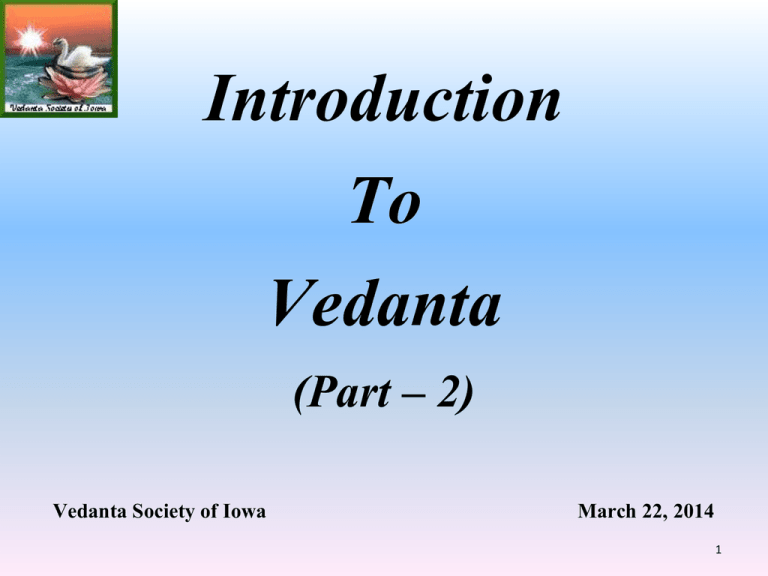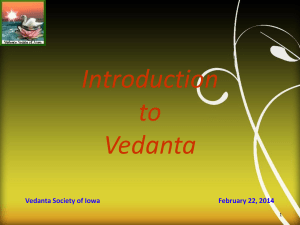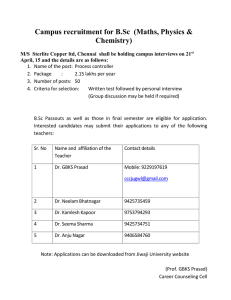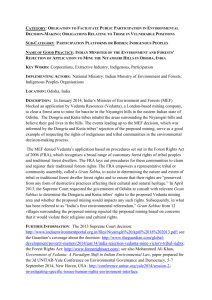Presentation (click to download)
advertisement

Introduction To Vedanta (Part – 2) Vedanta Society of Iowa March 22, 2014 1 What is Vedanta ? Culmination/Essence of Veda Karma Kanda -> Jnana Kanda Proclaims “Truth/Reality is One” Ekam Sat, Vipra Bahudha Vadanti Self/God/Brahman Basis (Philosophy) of Hinduism 2 Why Study Vedanta? To realize “what am I” “what is the nature of this World” “what is God” To remove all Delusion/Ignorance To be eternally Happy & Wise To revere everything as Divine To experience Oneness/Equality in everything 3 How to study Vedanta? (Acc. to Adi Sankaracharya) 1. Anubandha-Chatushtaya (अनब ु न्ध-चतष्ु टय) Four (4) preparatory factors 2. Sadhana-Chatushtaya (साधन-चतष्ु टय) Four (4) means of developing fitness for Sadhana 3. Shravana-Manana-Nididhysana (श्रवण-मनन-ननदिध्यासन) Three (3) fold process of Sadhana 4 Anubandha-Chatushtaya 1. Prayojana (’प्रयोजन’) – Purpose 2. Vishaya (’ववषय’) – Subject Matter 3. Sambandha(’सम्बन्ध’) – Connection 4. Adhikari (’अधधकारी’) – Fitness Cessation of all miseries Attainment of eternal bliss To be established in “One Truth/Reality” Connection with the Subject Matter Qualifications to acquire 5 Sadhana-Chatushtaya 1. Viveka (‘वववेक’) Discrimination between Eternal and Non-Eternal 2. Vairagya (‘वैराग्य’) Detachment from Non-Eternal 3. Shamadi-Sat-Sampatti (‘शमादि शट-सम्पत्तत’ ) Acquiring six (6) treasures 4. Mumukshutva (‘मुमुक्षुतव ‘) Intense longing for Liberation 6 Shamadi Shat-Sampatti 1. Shama (‘शम’) Controlling Mind 2. Dama (‘िम’) Controlling Sense Organs 3. TitikShA (‘नतनतक्षा’) Enduring pain/pleasures without reaction 4. Uparati (‘उपरनत’) Withdrawing Mind from external stimuli 5. ShraddhA (‘श्रद्धा’) Unwavering faith in Scriptures & Words of Guru 6. SamAdhAna(‘समाधान’) One pointed focus 7 Three (3) fold process of Sadhana 1. 2. 3. Shravana (‘श्रवण’) Hearing from Guru (Qualified Spiritual Teacher) Develops faith in the Scriptures Manana (‘मनन’) Reflecting on what’s heard from the Teacher Removes doubt Nididhysana (‘ननदिध्यासन’) Meditating on what’s heard from the Teacher Complete assimilation of Truth 8 9











